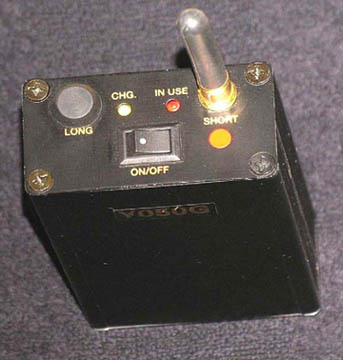According to a now public DHS assessment, small gps blocker, particularly "personal privacy devices" readily available on the Internet, pose one of the greatest risks to the nation's critical infrastructure.
Homeland Security report details privacy signal jammers risks
According to researchers at the Department of Homeland Security's (DHS) Infrastructure Threat and Risk Analysis Center (HITRAC), these devices, also known as PPDS, are among the three most likely causes of GPS outages. However, of these three scenarios, only the one involving multiple PPDS is considered the most likely to occur and the most likely to cause harm to industrial infrastructure operations.
The study authors evaluated the impact of different types of GPS interference after examining their possibilities. The more likely a certain type of disruption is to occur, the greater its potential impact, and the higher its overall risk.

To better understand what would happen if GPS signals were weakened or disrupted, the Department of Homeland Security took a closer look at how to integrate GPS into four of the 16 infrastructure sectors the agency considers critical to the nation. These four sectors - communications, emergency services, transportation (all types), and energy - were chosen because GPS PNTS are used to support or accomplish their core mission.
While the operations of all four sectors could be severely disrupted by at least two of the eight scenarios, scenario D - a scenario containing two or more personal privacy devices - is the only one of the eight that has a high impact on each sector.
- Transport. The transport sector is analysed in air and ground/sea modes. Most experts agree that for the aviation industry, the effects of PPD are likely to be viewed as isolated incidents of GPS signal attenuation, with problems lasting more than a month. However, that would be a hassle and a capacity issue because the nation's air traffic control system has multiple layers of redundancy.
- Energy. The energy sector "relies on GPS to provide power system reliability and grid efficiency, to synchronize services between power networks, and to detect faults within transmission networks," the researchers said. GPS is a key component of wide area distribution monitoring system, phase monitoring unit and disturbance monitoring equipment.
- The operator uses a phasor measurement unit (PMU) that relies on precise, universal timing information in the GPS signal to achieve extremely accurate time stamps that are related to sampled voltage and current inputs. "Collecting and collating these measurements provides a powerful technique for monitoring and modeling power networks," the authors explain.
- Communication. There are many types of communications infrastructure, including wireless, wired, satellite, and broadcast, that use timing signals from GPS constrained oscillators (GPSdos), clocks that maintain their accuracy by constantly referencing GPS time sources.
But communications companies have long factored in national disasters and unexpected outages, so they are usually prepared to deal with problems. If the timing system loses its lock on the GPS signal, it goes into hold mode, relying on its internal clock to slow down the decline in timing accuracy. The duration and performance level of the system depends on the quality of the non-GPS timing source.
Emergency services. Emergency services appear to be the sector most vulnerable to short-term GPS outages. First responders use GPS to navigate to the incident and, like the entire communications sector, they stay in touch with each other through a network that often relies on GPS-regulated oscillators.
"If the architecture of first responders' radio networks is centered around GPS timing, there is no ready backup when the GPS component is compromised," the DHS report said. "While dispatchers will still be able to communicate with the various emergency units, there may be disruptive effects on radio signals or untimely delays in communication voice radio systems using simulcast technology."
Without GPS, E911 service would also suffer and computer-aided dispatch systems would be hampered, making it more difficult to locate accident and stolen vehicles and dispatch fire, medical, and police. "While the department has not yet reached the point of complete reliance on GPS services, the use of GPS improves the department's ability to mitigate damage and assist in timely rescue responses," the researchers wrote.


 留言列表
留言列表


